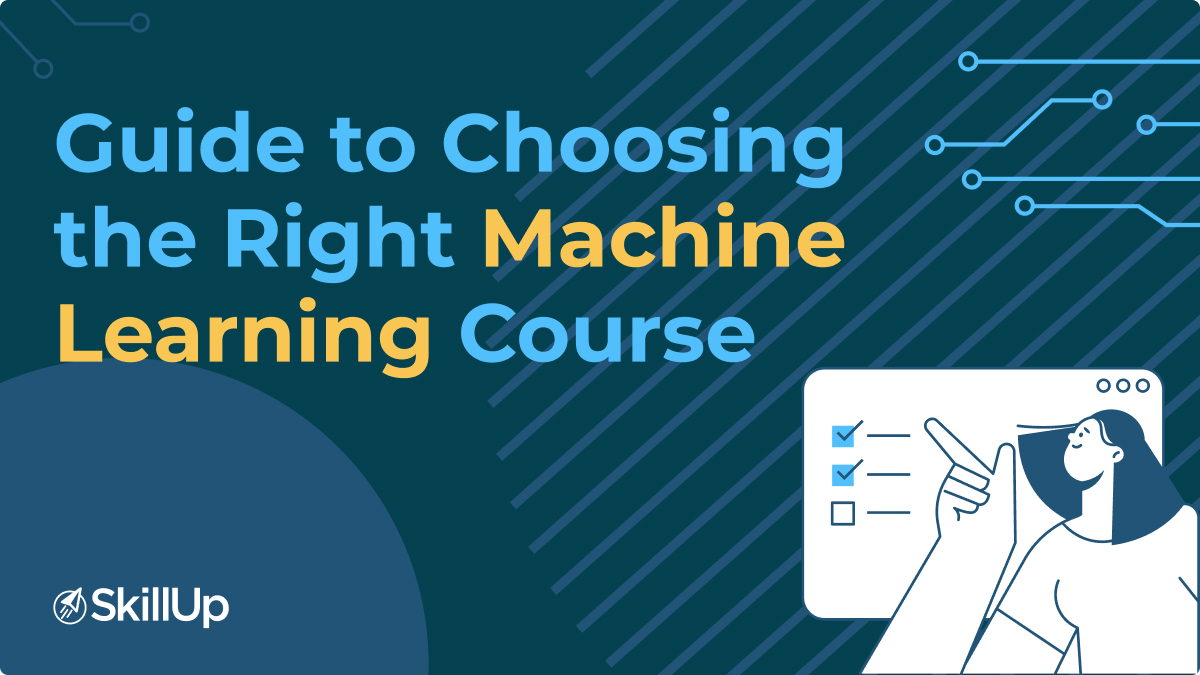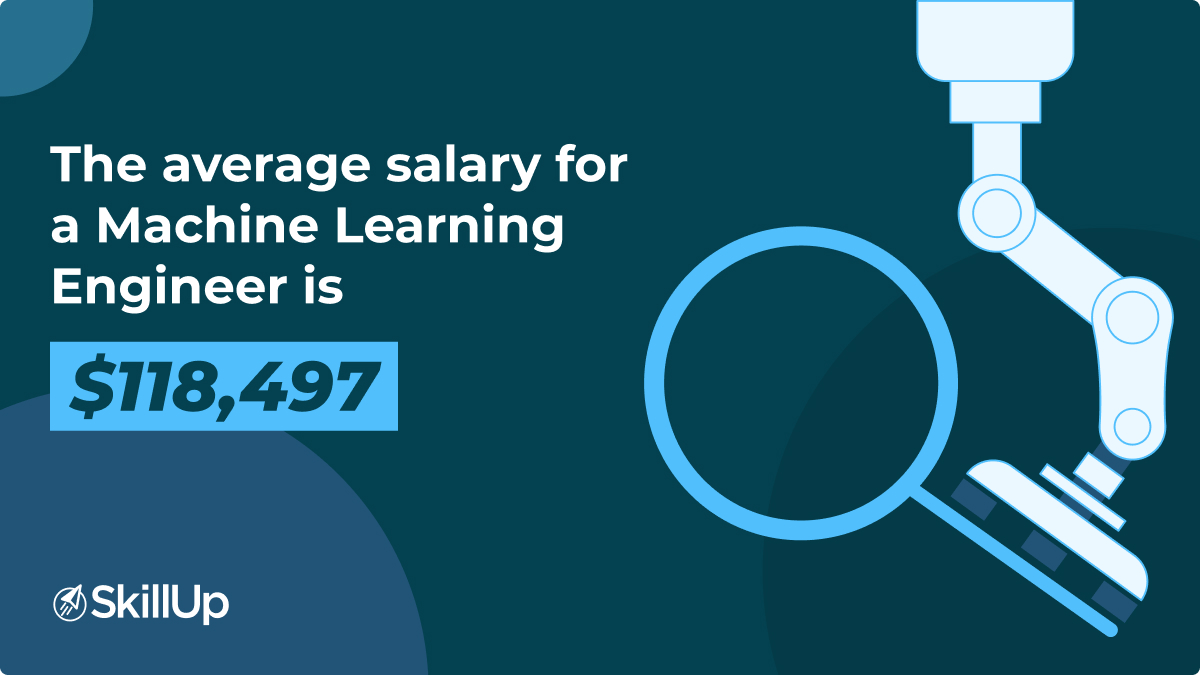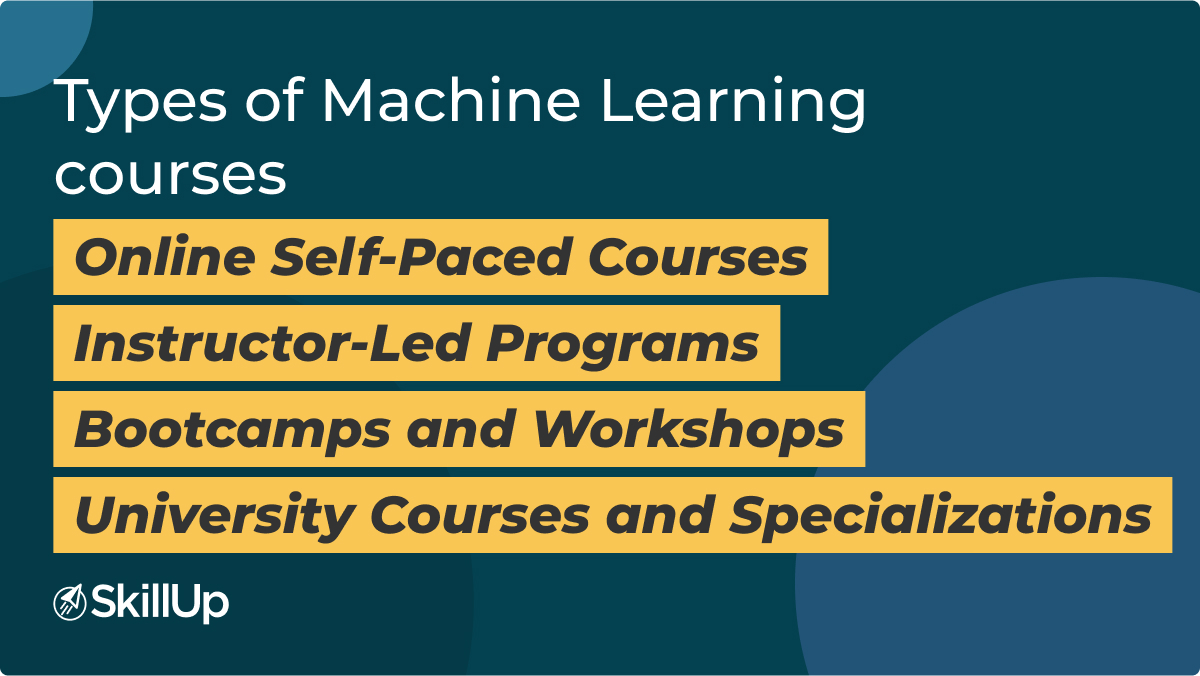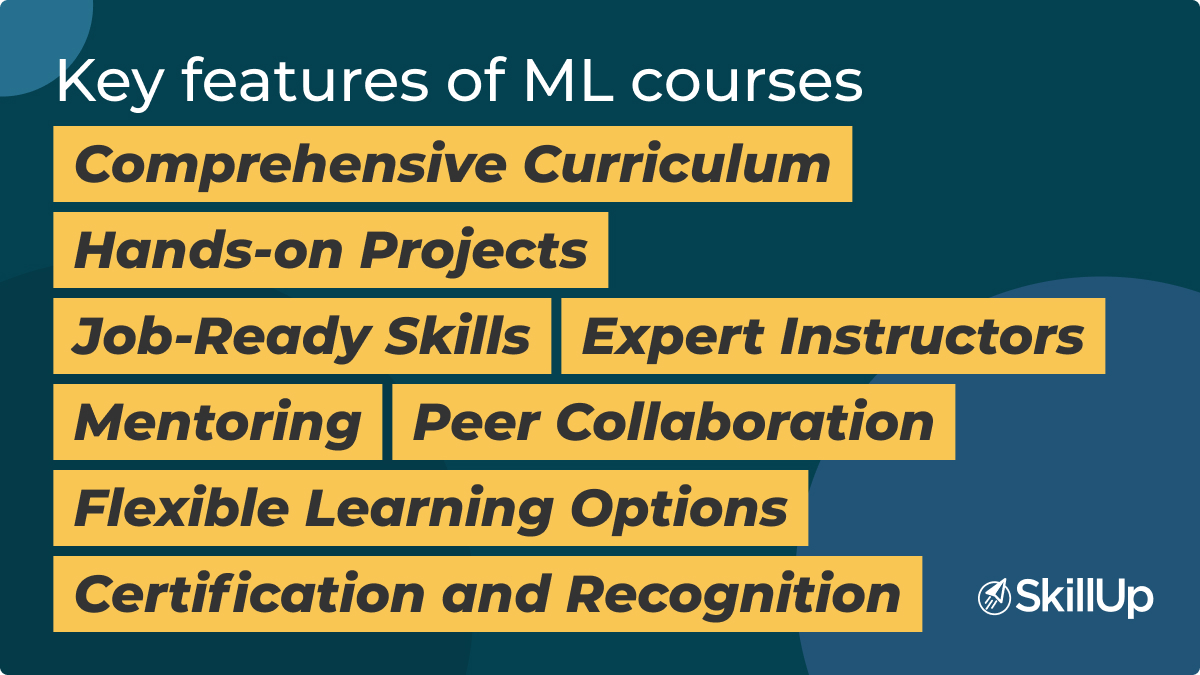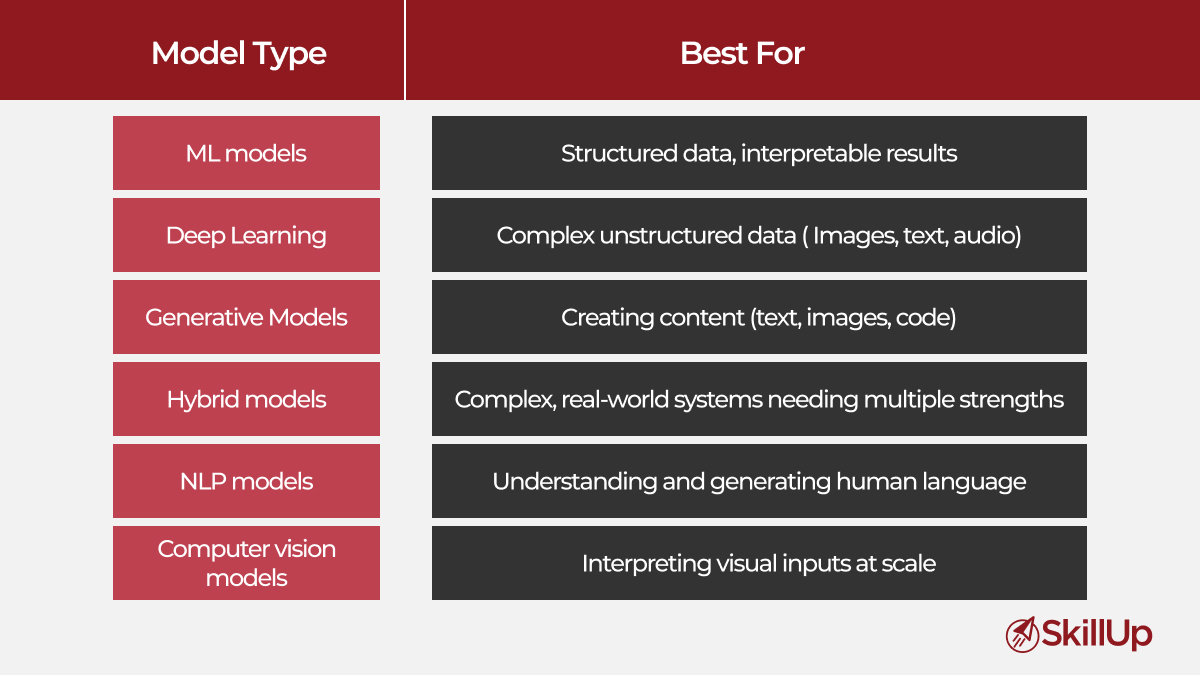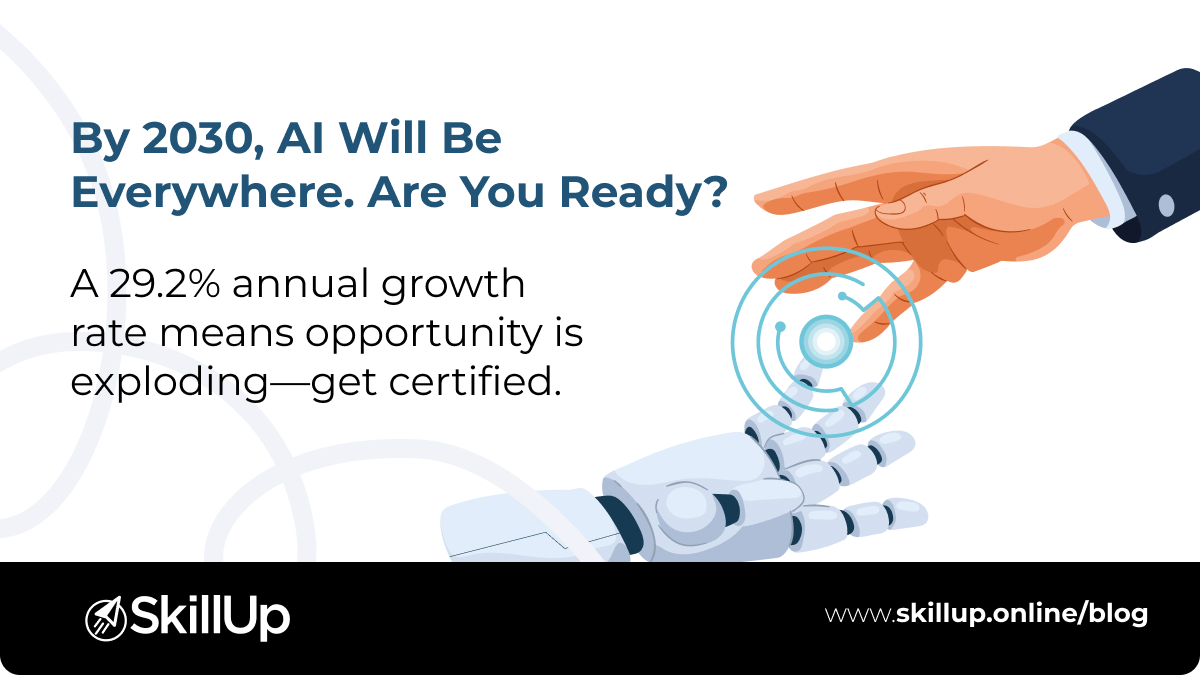According to Payscale , the average salary for a Machine Learning Engineer is $118,497 in 2024, is evidence that there is much to anticipate. With a plethora of ML courses to choose from, finding the one that resonates with your ambitions and learning preferences is crucial.
This guide is designed to assist you in navigating this selection process, ensuring that you make an informed decision that propels your career in this dynamic field. Whether you’re a beginner eager to explore the realm of algorithms or a seasoned professional seeking to enhance your skills, comprehending the landscape of ML education serves as the initial stride toward realizing your aspirations.
Understanding Machine Learning
Machine learning (ML) is reshaping our world as a pivotal element of artificial intelligence that enables computers to learn from data and make decisions with minimal human intervention. This fascinating field extends from enhancing your daily digital interactions, like tailoring your social media feeds, to advancing critical sectors such as healthcare through predictive analytics.
When you embark on your ML journey, grounding yourself in the basics is critical. Starting with foundational courses such as “Foundation of Artificial Intelligence & Machine Learning “ can demystify the core principles of algorithms, data manipulation, and the ethical dimensions of AI for you.
With the surge in data-centric decision-making across industries, your expertise in ML can set you apart. Grasping the kinds of challenges ML addresses, the nature of data it thrives on, and its ethical implications paves the way for you to harness its power. Whether your goal is to enrich customer engagement, streamline business processes, or spearhead novel innovations, mastering ML places you at the cutting edge of tech advancements.
Identifying Your Learning Objectives
Before diving into the vast sea of machine learning (ML) courses, you must anchor yourself with clear learning objectives. Ask yourself, what are you aiming to achieve? Whether it’s transitioning to a data-driven career, enhancing your current job role with ML skills, or simply satisfying a curiosity about how machines learn, your goals will guide your course selection.
Consider your current skill level and how it aligns with potential courses. If you’re new to the field, introductory courses that cover basics like Python programming and statistical analysis are a great starting point. The “Python for Data Science” course can be a perfect fit, offering you a gentle introduction to the coding and analytical skills foundational to ML.
On the other hand, if you’re already familiar with the basics and looking to specialize, advanced courses focusing on deep learning, natural language processing, or AI ethics might align more with your objectives. These courses will deepen your expertise and help you stand out in the job market.
Remember, learning ML is not just about understanding algorithms; it’s about applying them to solve real-world problems. Ensure the courses you consider offer hands-on projects or case studies. This practical experience is invaluable, enabling you to bridge the gap between theoretical knowledge and real-world application, making your learning journey both rewarding and relevant to your career aspirations.
Exploring ML Course Types
As you embark on your machine learning (ML) journey, you’ll find many course types, each offering unique benefits tailored to different learning styles and schedules. Understanding these options will help you choose the best fit for your needs.
- Online Self-Paced Courses: These courses offer flexibility to learn independently, fitting your studies around your existing commitments. They are ideal if you have a busy schedule or prefer to take your time digesting complex topics. SkillUp Online’s range of ML courses, including the foundational “Analyzing Data with Python,” allows you to learn from anywhere, balancing structure and autonomy.
- Instructor-Led Programs: If you thrive in a structured environment with real-time feedback, consider instructor-led courses. These programs often include live sessions, allowing you to interact directly with experts and peers, enhancing your learning experience with dynamic discussions and immediate support.
- Bootcamps and Workshops: Bootcamps are intensive, short-term training programs designed to equip you with specific skills in a condensed timeframe. They are perfect if you want to quickly transition or upgrade your career. On the other hand, workshops offer hands-on experience in a particular aspect of ML, ideal for building or enhancing practical skills.
- University Courses and Specializations: For a more academic approach, university-led courses or specializations provide comprehensive coverage of ML concepts, often culminating in a certification or degree. These courses are well-suited if you seek in-depth knowledge and a formal qualification. However, it’s important to note that university courses don’t always include the valuable hands-on practical experience that employers often look for.
Your choice should align with your learning preferences, career goals, and the level of commitment you’re ready to make. Whether you opt for the flexibility of self-paced learning, the interactive nature of instructor-led courses, the intensity of a bootcamp, or the depth of university programs, ensure the course content and format resonate with your learning objectives and lifestyle.
Key Features of Top ML Courses
When selecting a machine learning (ML) course, look beyond the curriculum to key features that can enhance your learning experience and outcomes. Here are some attributes to consider ensuring the course you choose offers the best platform for your growth:
- Comprehensive Curriculum: Your ML course should offer a well-rounded curriculum covering theoretical concepts and practical applications. Look for courses that provide a solid foundation in ML principles, algorithms, data handling, and advanced topics relevant to your interests.
- Hands-on Projects: The ability to apply what you’ve learned is crucial in ML. Courses that include practical projects or real-world case studies give you hands-on experience, allowing you to understand the nuances of implementing ML solutions and building a portfolio that showcases your skills to potential employers.
- Job-Ready Skills: Alongside theoretical knowledge, acquiring job-ready skills is paramount in ML education. Look for courses that not only teach theoretical concepts but also focus on practical skills such as coding, data manipulation, and model deployment. These skills are highly sought after by employers and will enhance your employability in the field of ML.
- Expert Instructors: Learning from experienced professionals can significantly enrich your understanding. Courses led by industry experts or academicians with a strong background in ML can provide insights into current best practices and future trends.
- Mentoring: Access to mentorship can be invaluable in your ML journey. Look for courses that offer mentorship opportunities, where you can receive personalized guidance, feedback, and support from seasoned professionals. Mentoring enhances your learning experience, accelerates your progress, and provides valuable networking opportunities within the field of ML.
- Peer Collaboration: Engaging with fellow learners can enhance your learning experience. Look for courses that offer forums, study groups, or collaborative projects, enabling you to exchange ideas, solve problems collectively, and build a professional network.
- Flexible Learning Options: The course should accommodate your learning style and commitments, whether you prefer self-paced learning or a more structured schedule. Flexibility in course access and completion timelines can help you manage your learning alongside other responsibilities.
- Certification and Recognition: Completing a course is an achievement that should be recognized. Opt for courses that offer a certificate upon completion, as this can be a valuable addition to your resume, signaling your commitment and expertise to employers.
By prioritizing these features, you can choose an ML course that delivers quality content and provides a supportive and engaging learning environment, setting you up for success in your ML endeavors.
Navigating the ML Certification Landscape
Earning a machine learning (ML) certification can significantly bolster your professional profile, showcasing your expertise and dedication to potential employers. As you explore the vast landscape of ML certifications, here are some key considerations to guide your choice:
- Alignment with Career Goals: Ensure the certification you consider aligns with your career aspirations. Whether you aim to become a data scientist, ML engineer, or AI specialist, choose a recognized and valued certification in your desired field.
- Industry Recognition: Look for certifications from reputable organizations or educational institutions. Certifications like the “TechMaster Certificate Program in Artificial Intelligence (AI) with Data Science” are designed to meet industry standards, ensuring your skills are up-to-date and relevant.
- Curriculum Relevance: The best certifications cover foundational concepts and advanced topics, ensuring you’re well-versed in the latest ML technologies and practices. Review the curriculum carefully to ensure it covers the areas you’re interested in and addresses current industry needs.
- Practical Experience: Certifications that include hands-on projects or real-world case studies provide valuable experience, allowing you to apply theoretical knowledge in tangible scenarios. This experience is invaluable and often a key differentiator in the job market.
- Continuing Education: ML constantly evolves, so consider certifications that offer or encourage ongoing learning opportunities. It could mean access to updated course materials, alumni networks, or continuing education units (CEUs).
By carefully considering these factors, you can select an ML certification that enhances your skill set and positions you as a competitive candidate in the dynamic field of machine learning.
Leveraging SkillUp Online for ML Education
SkillUp Online is a valuable resource for your machine learning (ML) educational journey. With a diverse range of courses tailored to different skill levels and career paths, SkillUp Online can help you achieve your learning objectives in this dynamic field.
- Foundational Courses: Starting with the basics is crucial if you’re new to ML. SkillUp Online’s “Python for Data Science” course introduces you to the fundamental programming skills needed in data science and ML, setting a solid foundation for your learning journey.
- Specialized Programs: Technical courses such as the “DP-100: Designing and Implementing a Data Science Solution on Azure” are ideal for those looking to dive deeper into specific ML domains. This course focuses on designing and implementing ML solutions, providing you with hands-on experience in a cloud environment.
- Certification Preparation: If you’re aiming for a recognized certification in the field, the “TechMaster Certificate Program in Artificial Intelligence (AI) with Data Science” prepares with the necessary knowledge and the practical skills required to excel in certification exams and real-world applications.
- Continuous Learning: SkillUp Online understands the importance of staying updated in the ever-evolving field of ML. Our courses often include access to updated materials and a community of learners and experts, ensuring you remain at the forefront of ML advancements.
By integrating SkillUp Online courses into your learning path, you can ensure a well-rounded and up-to-date education in machine learning, equipping you with the skills and knowledge to excel in your career.
Whether you’re laying the groundwork with foundational skills or advancing to specialized knowledge, your journey to ML mastery is just a course away. Don’t wait to shape the future; begin your machine-learning adventure today and unlock endless possibilities for your career.
Embark on Your ML Adventure
Now’s the time to step into the transformative world of machine learning. With SkillUp Online, you can access a diverse array of courses tailored to guide you from novice to expert. Whether you’re laying the groundwork with foundational skills or advancing to specialized knowledge, your journey to ML mastery is just a course away.
If you’re eager to build the necessary skills and kickstart your journey in machine learning, our Learner Support Team is here to help. Contact us at [email protected], and we’ll gladly guide you on your next steps. With the proper guidance and resources, your journey in the dynamic world of data science is just beginning.
SkillUp Online
